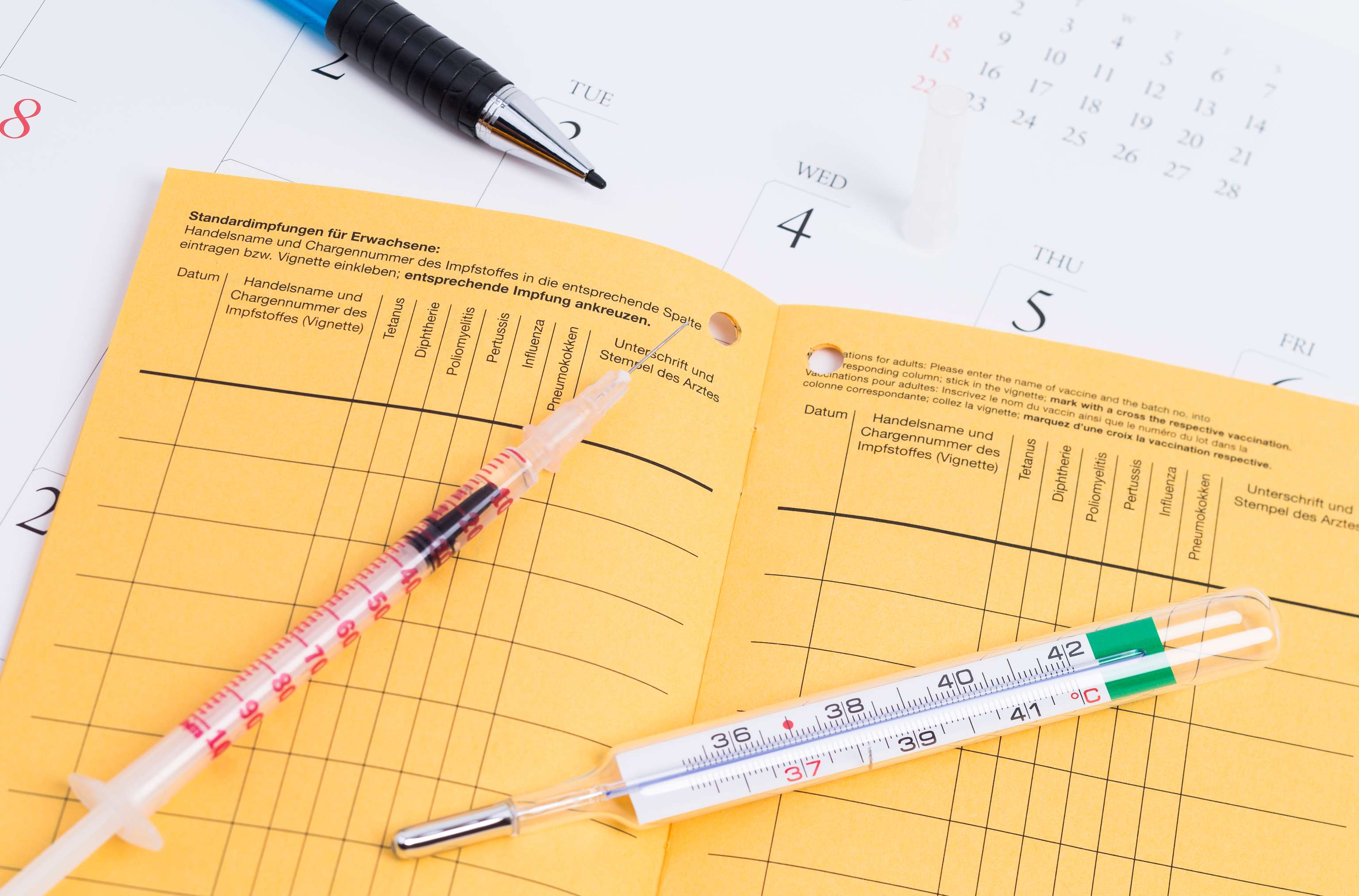Why influenza vaccination could be of particular importance this winter

The hygiene measures used over the past two years to contain the Covid 19 pandemic slowed not only the spread of coronaviruses but also infection with seasonal influenza viruses. As a result, the body was exposed to fewer bacteria and viruses, making it difficult for the body's immune defenses to strengthen. As a result of the relaxed protective measures, the risk of infection with the flu has now also increased. This was particularly evident in Australia, where the annual flu epidemic was particularly severe from June to August (the Australian winter months). A similar flu situation is feared in Europe in the coming months. According to doctors and health ministries, the risk of infection could be reduced by flu vaccination.
Who should protect themselves with a vaccination?
The STIKO (Standing Commission on Vaccination) recommends that risk groups in particular immunize themselves against the viruses. This concerns:
- Persons over 60 years of age (with high-dose vaccine).
- Pregnant women from the 2nd trimester or, in the case of increased health risks, from the 1st trimester onwards.
- Persons with an increased health risk due to an underlying disease (e.g. cardiovascular diseases, chronic diseases of the respiratory organs, kidney and liver diseases, metabolic diseases, chronic underlying neurological diseases)
- residents of old people's or nursing homes
- Persons who are considered a potential source of infection for risk persons living in the same household.
Furthermore, due to an increased risk of infection in the professional environment, the following groups of people are advised to be vaccinated:
- Persons at increased risk (e.g., medical personnel).
- Persons in facilities with a high level of public traffic
- Persons who are considered a potential source of infection for at-risk persons in their care.
Who should not be vaccinated?
- Persons suffering from a febrile illness or an acute infection (but should be vaccinated at the earliest possible opportunity once the illness has resolved)
- Persons with an allergy to chicken egg white or to other components of the vaccine (vaccination possibilities should be discussed with the attending physician)
- Children and adolescents suffering from clinical immunodeficiency or severe asthma should not be vaccinated with the live vaccine
When should you get vaccinated?
The immune system needs 10 to 14 days to build up the desired protection after vaccination. In Germany, the number of cases of influenza infections usually begins to increase at the end of September and reaches its peak after the turn of the year. According to the Robert Koch Institute, the recommended time for vaccination is between October and mid-December.
What antigens does the vaccine contain this year?
The seasonal influenza vaccine contains components of the respective virus variants that are expected in the coming season. This year's influenza vaccine for the northern hemisphere contains the antigens for the already known variants of the southern hemisphere virus strains: influenza type A viruses H1N1 and H3N2, and influenza type B viruses Austria and Phuket.

Where can you get vaccinated?
Vaccination offers in Germany
In Germany, the following offers for flu vaccination are available:
| Vaccination at the family doctor's office: | The costs for the flu vaccination are fully covered by the statutory health insurance. Private health insurance covers a large part of the costs, but in the case of vaccination of high-risk persons (according to the STIKO), the costs are fully covered by the PVK. |
| Imunition in the pharmacy: | Selected pharmacies offer the option of influenza vaccination, and the statutory health insurance also covers the costs here. Privately insured persons over the age of 18 pay 11 euros for the vaccination including vaccine and can submit the receipt to their private health insurance for reimbursement. |
| Vaccination in regional health offices and businesses: | It is possible to get vaccinated at regional health offices.Vmany companies offer flu vaccination for their employees, and insurance usually also covers the costs. |
Vaccination offers in Austria
In Austria, it is possible to take advantage of the following offers for flu vaccination, depending on the province:
| Vaccination at the family doctor's office: | For children, the vaccination is free of charge in all provinces. In Vienna, it is also free of charge for persons 15 years and older. In Burgenland, Vorarlberg, Carinthia, Lower Austria, Salzburg and Tyrol, the costs range from about 16 to 27 euros, depending on the vaccine and vaccination fee. |
|
Vaccination in regional health offices: |
For children, vaccination is free in all provinces. In Vienna, it is also free for persons 15 years and older. In Carinthia, Upper Austria and Styria, the cost ranges from about 16 to 27 euros, depending on the vaccine and vaccination fee. |
| Vaccination in retirement and nursing homes: | Flu vaccination for residents of retirement and nursing homes is free in all provinces. |
| Vaccination in businesses: | Many companies offer flu vaccination for their employees, with employers bearing the costs. |
Starting in the fall of 2023, the vaccination costs for adults will also be covered by the statutory insurance in all federal states, which means that only the prescription fee for the vaccine (6.65 euros) will have to be paid.
Vaccination options in Switzerland
In Switzerland, the following options are available for flu vaccination:
| Vaccination at the family doctor's office: | For people who meet the vaccination recommendations of the FOPH, the cost of vaccination is covered by the compulsory health insurance (OKP). |
| Vaccination at the pharmacy: | From the age of 16, vaccination against the influenza viruses is also provided in pharmacies in all cantons (exception Ticino TI: from the age of 65). The cost of vaccination, including the vaccine, is about 35-45 CHF, depending on the pharmacy (can be reclaimed from some insurance companies if a doctor's prescription is available). |
| Vaccination at work: | Many companies offer flu vaccination for their employees, if there is an occupational indication for vaccination, the cost is usually covered by the employer. |
| National Flu Vaccination Day: | On November 25, 2022, there will be an opportunity to be spontaneously vaccinated at participating doctor's offices and pharmacies for a flat rate of CHF 30. |

Sources
- Grippeschutzimpfung: Antworten auf häufig gestellte Fragen (Robert-Koch-Institut)
- Australian Government, Departement of Health and Aged Care
- Saisonale Influenza-Impfstoffe (Paul-Ehrlich-Institut)
- Häufig gestellte Fragen zur Grippe und zur Grippeimpfung (Bundesamt für Gesundheit BAG)
- Schutz vor der Grippe (Schutz vor der Grippe)
- Übersicht Influenza-Impfangebote in den Bundesländern (Bundesministerium für Soziales, Gesundheit, Pflege und Konsumentenschutz)
- Influenza (Grippe) (Impfservice Wien)
- Grippeimpfungen beitragsfrei? (Österreichische Gesundheitskasse)
- Grippeschutz im Betrieb: gewappnet für die nächste Grippewelle (BARMER)
- Zahlt die TK die Grippeschutzimpfung? (Die Techniker)

Olivia Malvani, BSc
Last updated on 22.11.2022
Your personal medication assistant
Browse our extensive database of medications from A-Z, including effects, side effects, and dosage.
All active ingredients with their effects, applications, and side effects, as well as the medications they are contained in.
Symptoms, causes, and treatments for common diseases and injuries.
The presented content does not replace the original package insert of the medication, especially regarding the dosage and effects of individual products. We cannot assume liability for the accuracy of the data, as the data has been partially converted automatically. Always consult a doctor for diagnoses and other health-related questions.
© medikamio